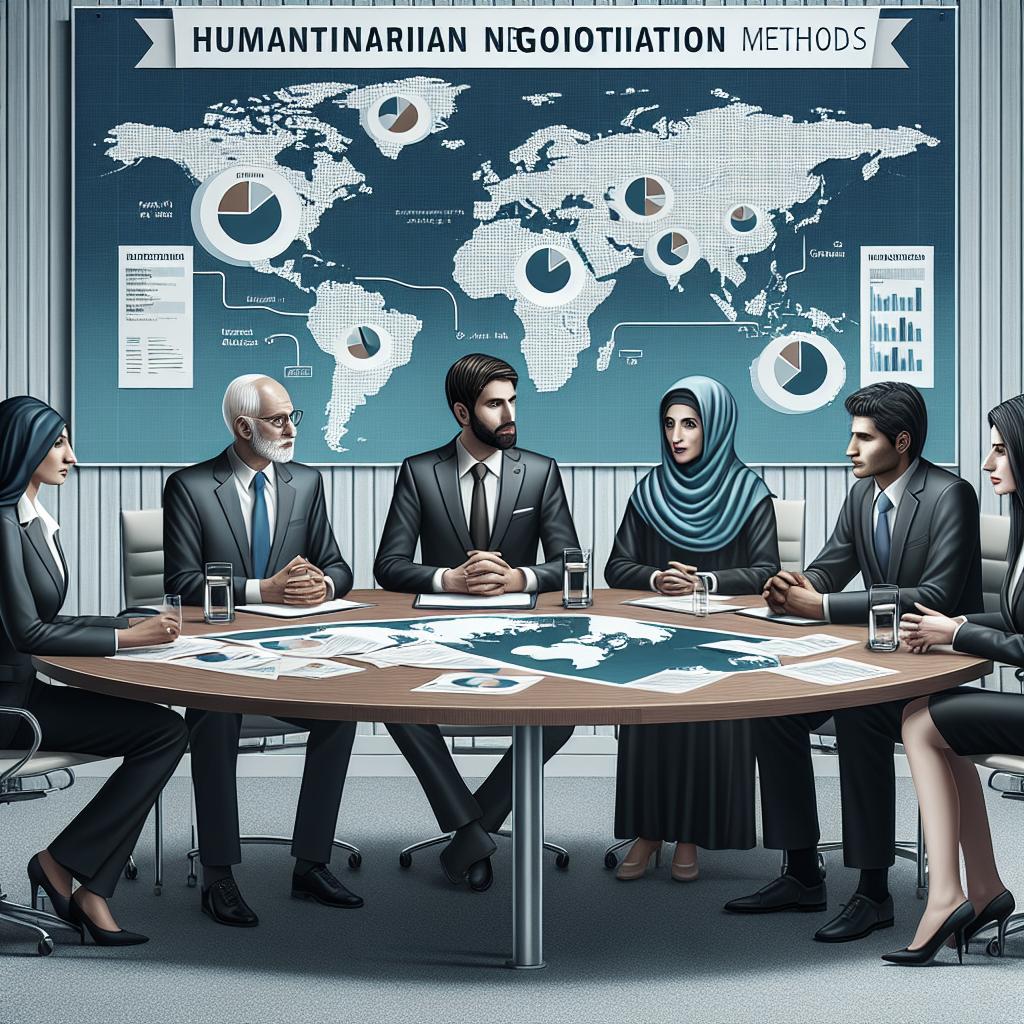“`html
Report details
Humanitarian negotiation is a complex and sensitive process aimed at securing humanitarian space in conflict or crisis scenarios. This negotiation ensures that aid reaches those who need it, overcoming obstacles posed by conflicting parties and precarious situations. Various methods are employed, ranging from leveraging international law to building trust through open communication. This blog post explores the diverse and strategic approaches employed in humanitarian negotiation, shedding light on collaborative techniques, legal frameworks, and ethical considerations. Read on to discover the intricacies and essential components that define effective humanitarian negotiation.
Attachments
Before diving into the detailed methods and techniques of humanitarian negotiation, it is essential to understand some key background concepts. Attachments reflect various supporting tools and guidelines essential for a comprehensive negotiation strategy. These may include ethical standards, strategic frameworks, and collaborative tools designed to facilitate a successful negotiation.
Additionally, training modules and case studies serve as practical attachments that provide insights into real-world applications of negotiation techniques. Such tools assist negotiators in honing their skills and adapting to dynamic environments, ensuring they are well-equipped to handle the unpredictability of humanitarian crises.
Share
Sharing knowledge and strategies is vital in the field of humanitarian negotiation. Collective action and collaborative learning enhance the efficacy of negotiation efforts. Networking forums, workshops, and collaborative platforms allow negotiators to share experiences, challenges, and solutions, fostering a community of practice.
Moreover, social media and digital platforms offer avenues for raising awareness and garnering support for humanitarian efforts. Sharing success stories and challenges faced in negotiation processes can mobilize public opinion and influence policy changes, amplifying the reach and impact of humanitarian interventions.
Abstract:
Humanitarian negotiation is an indispensable skill in the landscape of global humanitarian efforts. This piece delves into various methods employed in humanitarian negotiations, including the strategic use of international laws, building rapport through communication, collaborative approaches, and ethical considerations. Through comprehensive analysis and practical examples, it underscores the need for adopting diverse and adaptive strategies to navigate the complexities of conflict and ensure aid delivery.
Citation:
Lucas Martin, “Methods of Humanitarian Negotiation,” BlogPost.com, accessed [Today’s Date], www.blogpost.com/methods-humanitarian-negotiation.
| Subheading | Summary |
|---|---|
| Report details | Introduction to the complexity and importance of humanitarian negotiation and a brief overview of the methods used. |
| Attachments | Detailed background concepts including ethical standards, strategic frameworks, and practical tools for effective negotiation. |
| Share | Importance of knowledge sharing and collaborative efforts in enhancing negotiation strategies, including leveraging digital platforms and networking forums. |
| Abstract | Comprehensive summary of the various methods used in humanitarian negotiation and the importance of diverse strategies. |
| Citation | Proper citation for reference and further research on the topic. |
“`

Leave a Reply